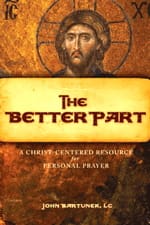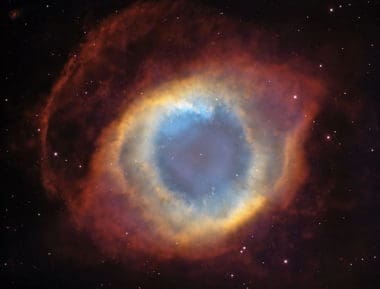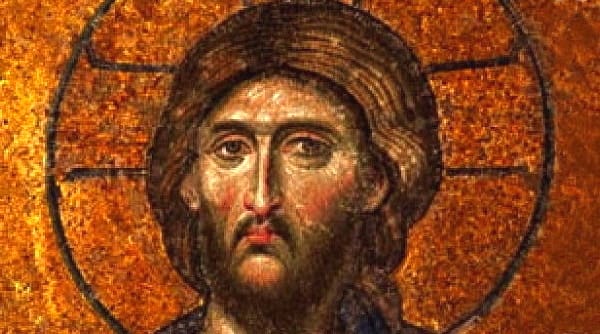“Not all of us are called to undergo martyrdom, but we are all called to a life of Christian virtue. Now virtue demands courage… It demands from us daily, assiduous, unremitting effort to our very last breath, and so it can be called a slow and continuous martyrdom.” – Venerable Pope Pius XII
 Mark 13:28-37: ‘Take the fig tree as a parable: as soon as its twigs grow supple and its leaves come out, you know that summer is near. So with you when you see these things happening: know that he is near, at the very gates. I tell you solemnly, before this generation has passed away all these things will have taken place. Heaven and earth will pass away, but my words will not pass away. ‘But as for that day or hour, nobody knows it, neither the angels of heaven, nor the Son; no one but the Father. Be on your guard, stay awake, because you never know when the time will come. It is like a man traveling abroad: he has gone from home, and left his servants in charge, each with his own task; and he has told the doorkeeper to stay awake. So stay awake, because you do not know when the master of the house is coming, evening, midnight, cockcrow, dawn; if he comes unexpectedly, he must not find you asleep. And what I say to you I say to all: Stay awake!’
Mark 13:28-37: ‘Take the fig tree as a parable: as soon as its twigs grow supple and its leaves come out, you know that summer is near. So with you when you see these things happening: know that he is near, at the very gates. I tell you solemnly, before this generation has passed away all these things will have taken place. Heaven and earth will pass away, but my words will not pass away. ‘But as for that day or hour, nobody knows it, neither the angels of heaven, nor the Son; no one but the Father. Be on your guard, stay awake, because you never know when the time will come. It is like a man traveling abroad: he has gone from home, and left his servants in charge, each with his own task; and he has told the doorkeeper to stay awake. So stay awake, because you do not know when the master of the house is coming, evening, midnight, cockcrow, dawn; if he comes unexpectedly, he must not find you asleep. And what I say to you I say to all: Stay awake!’
Christ the Lord Christ is the “master of the house,” but ever since he ascended into heaven (forty days after his resurrection), he has ruled through his “servants.” The Church is Christ’s household, and all its members (i.e., us) are his servants. This passage (read in the Church on [the] first Sunday of Advent, the beginning of the new liturgical year) reminds us that this present arrangement will not last forever, and when the Lord returns he will hope to find each of us working hard at whatever chores we have been assigned.
People often accuse Christianity of self-contradiction: it claims that the Savior has already come into the world, and yet the world (and even some Christians) is still full of suffering, evil, and sin. What kind of a Savior would leave the world no better than he found it? Yet, Christ has consciously chosen to insert the “age of the Church” between his first and second coming. In this age, every human person is given the opportunity to please God and merit a heavenly reward by following Christ. As vehemently asserted in this passage, Christ the Lord longs for us to use this opportunity well, and we have no one to blame but ourselves if we don’t.
Christ the Teacher Christ keeps things simple – the better for us to understand them. In these few lines, he provides a snapshot of what it means to be a Christian. To follow Christ is to honor him by serving and obeying the Church (the “house”). Each of us is a member of this household, and our membership constitutes the most important aspect of our lives on earth. If we live accordingly, we will be ready to welcome him when he comes again. If we neglect to “watch,” however, and let other concerns take precedence over our relationship with God in the Church, we may be unpleasantly surprised by the eventual outcome. So simple – and yet, at times so difficult!
Exactly when these events will occur is shrouded in mystery; no one but the Father knows. We can only recognize the signs that they are on the way in general, broad strokes (thus the fig tree analogy). What Jesus wants to make sure his apostles understand is that his  second coming will occur, and he wants them to be ready for it at all times: “Be watchful! Be alert! You do not know when the time will come.” We do not know, because we do not need to know. God has seen fit to assure us that history has a purpose, that it will come to an end, and that we should always keep this eventuality in mind. Through the ages, many Christians have become obsessed with the details of how and when this will occur, often neglecting the whole point of this datum of revelation. It suffices for us to know that we are part of a story that has meaning and that it will come to a definitive end, such that the sun and moon and stars will be darkened – the whole order of creation will be transformed. At that time, we will receive just recompense for how we carried out our role in the story. It’s that simple, and it’s that momentous.
second coming will occur, and he wants them to be ready for it at all times: “Be watchful! Be alert! You do not know when the time will come.” We do not know, because we do not need to know. God has seen fit to assure us that history has a purpose, that it will come to an end, and that we should always keep this eventuality in mind. Through the ages, many Christians have become obsessed with the details of how and when this will occur, often neglecting the whole point of this datum of revelation. It suffices for us to know that we are part of a story that has meaning and that it will come to a definitive end, such that the sun and moon and stars will be darkened – the whole order of creation will be transformed. At that time, we will receive just recompense for how we carried out our role in the story. It’s that simple, and it’s that momentous.
Christ the Friend Christ is our Judge, but he is also our Savior. “Heaven and earth will pass away, but my words will not pass away.” If we build our lives on the rock of Christ and his teaching, we will outlive “heaven and earth.” Jesus doesn’t speak about these events in order to scare us, but in order to motivate us. It is so easy to fall into a purely natural outlook on life, getting so wrapped up in our daily to-do lists that we forget the big picture. When we do that, we push our relationship with Christ further and further into the background. For example, our prayer life is the first thing to go out the window when a time crunch occurs. However, Jesus knows that nothing could be worse for our happiness, now and forever. Therefore, he reminds us to keep the end in sight, so that we can keep everything else in proper perspective.
Christ in My Life Why do I get so distracted with so many things and forget how simple life is from your perspective? All you ask of us is to do your will each moment. And most of the time your will is so clear! The normal duties and relationships and responsibilities, the basic virtue of Christian charity… Just as you and Mary lived in Nazareth. So why do I get distracted? You are in charge Lord, not I…
You are perfect wisdom and perfect goodness. You hold all of history in your hands. Remind me, Lord, that I am a traveler. Remind me, every day, that this is not my final resting place. I don’t want to do in eighty years what I could have done in only twenty. Help me to fulfill the mission you have given me: to make your goodness and wisdom known to as many people as possible through my words, actions, and lifestyle…
What would I do without you, Lord? Never let me be separated from you. Only you have the words of eternal life, only you have suffered and died to win forgiveness for my sins, and only you have risen from the dead to open the gates of heaven to those who believe in you. Increase my faith, Lord, and make me a channel of your grace…
Editor’s Note: The reflection on the first part of this Sunday’s Gospel is contained in Fr. John’s first meditation on Mark 13:14-27, found on site today. Click here to read the first part.
PS: This is just one of 303 units of Fr. John’s fantastic book The Better Part. To learn more about The Better Part or to purchase in print, Kindle or iPhone editions, click here. Also, please help us get these resources to people who do not have the funds or ability to acquire them by clicking here.
+
Art for this post on Mark 13:28-37: Cover of The Better Part used with permission. The Helix Nebula from Blanco and Hubble, 2014 October 12, NASA, Public Domain.


